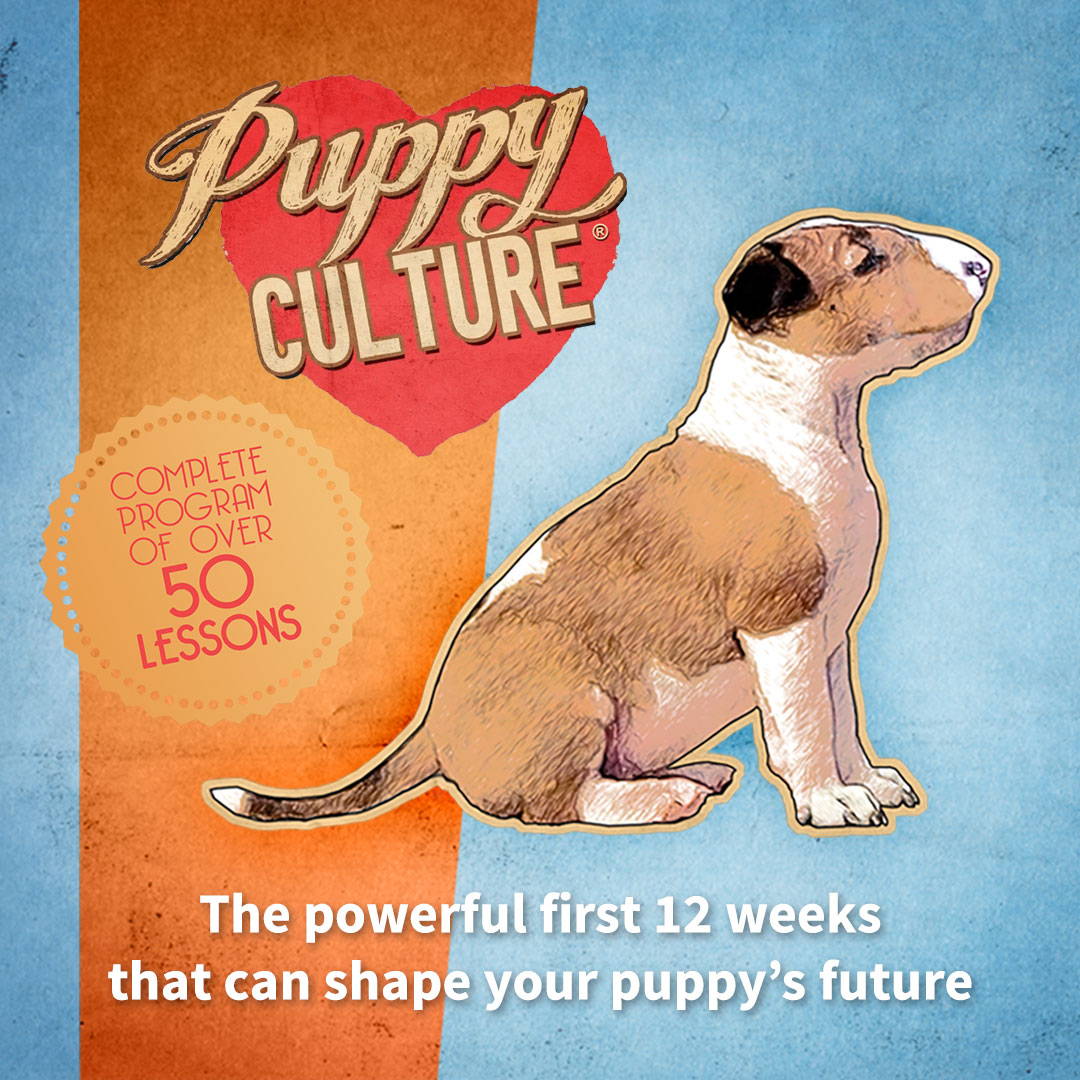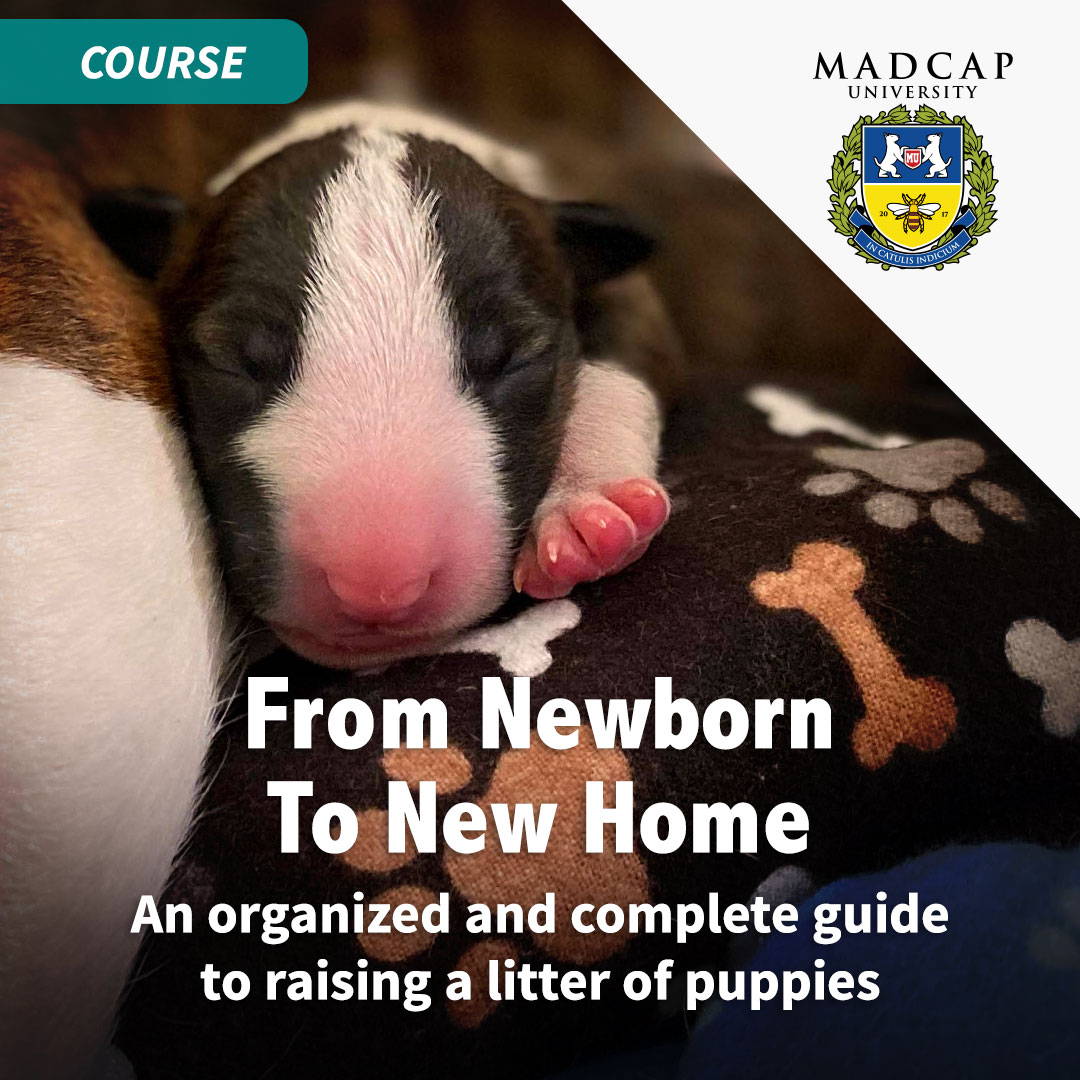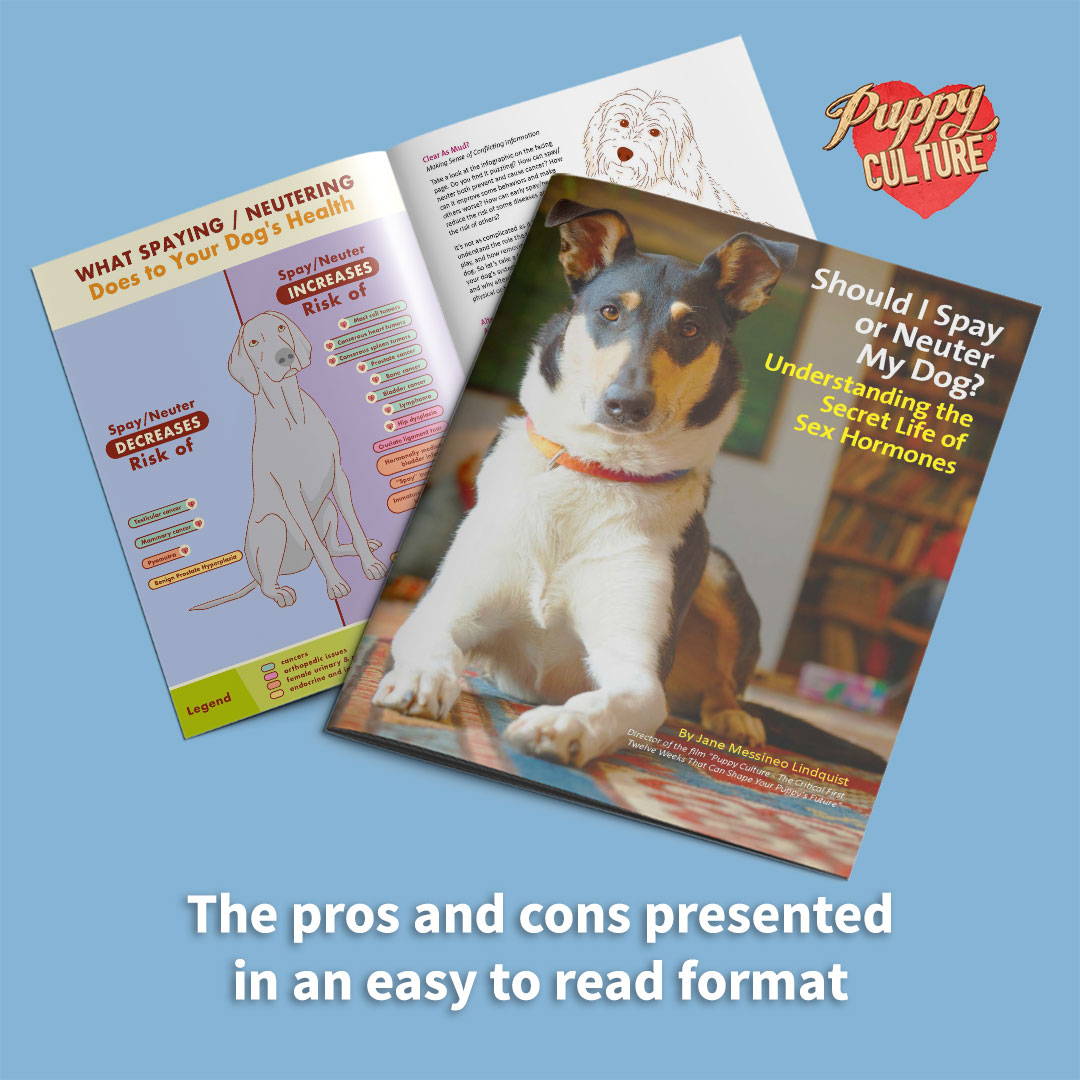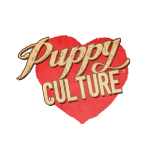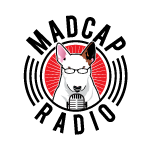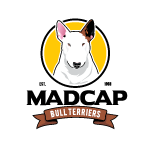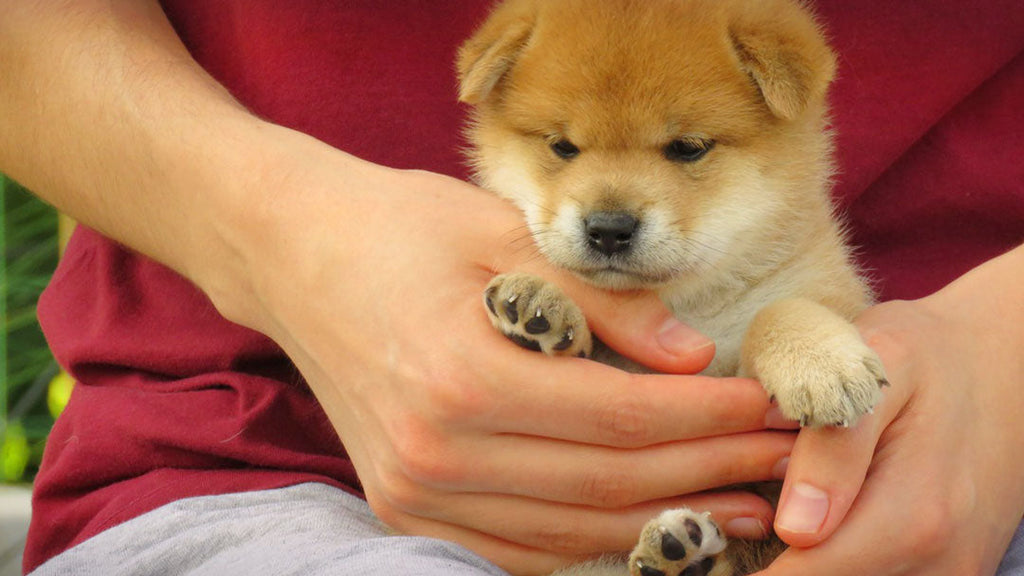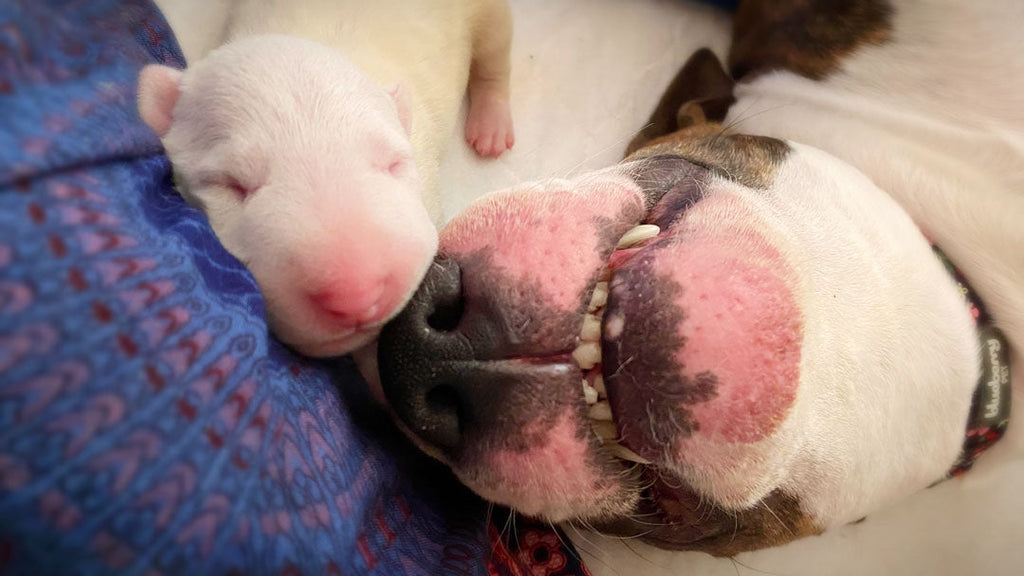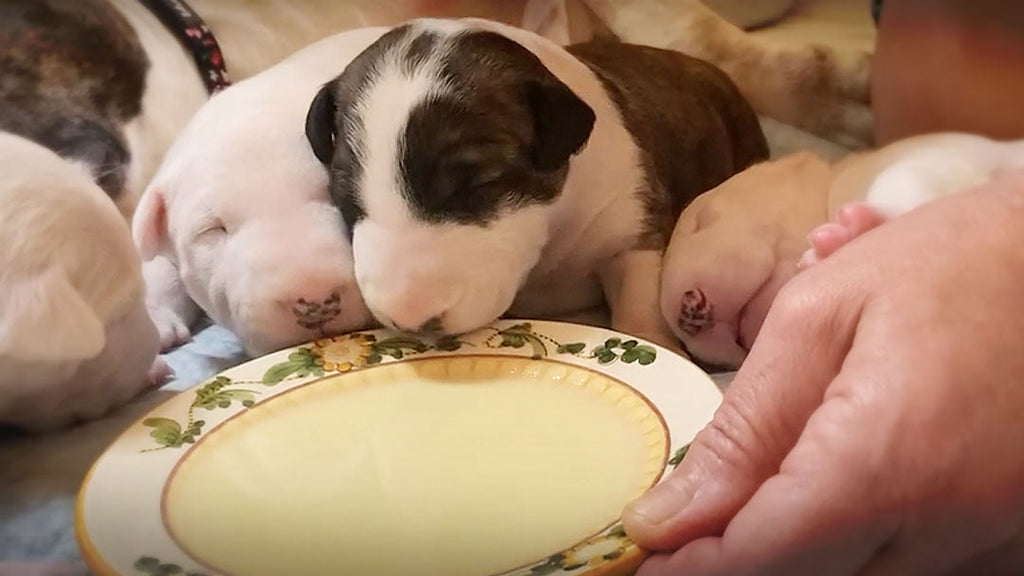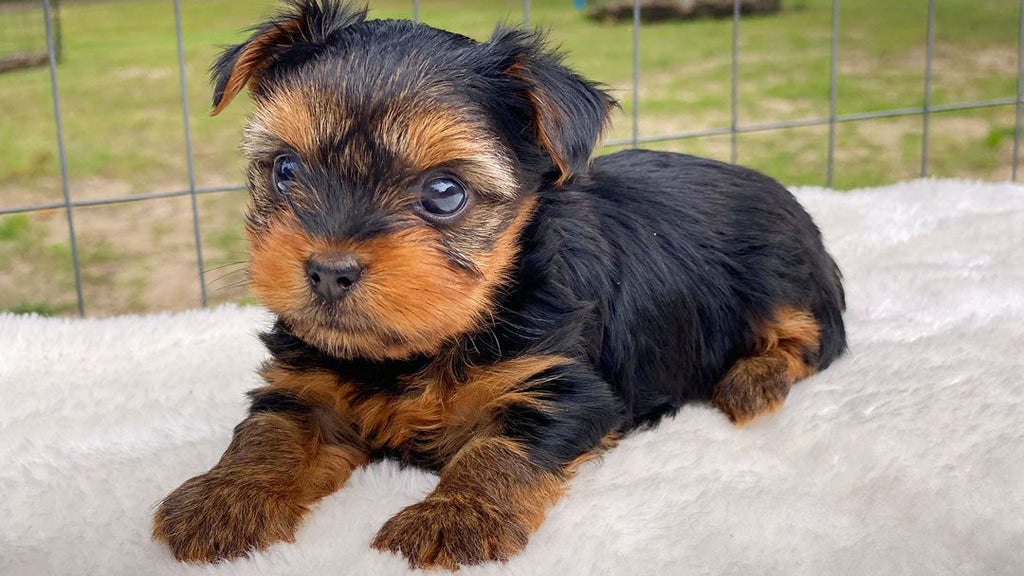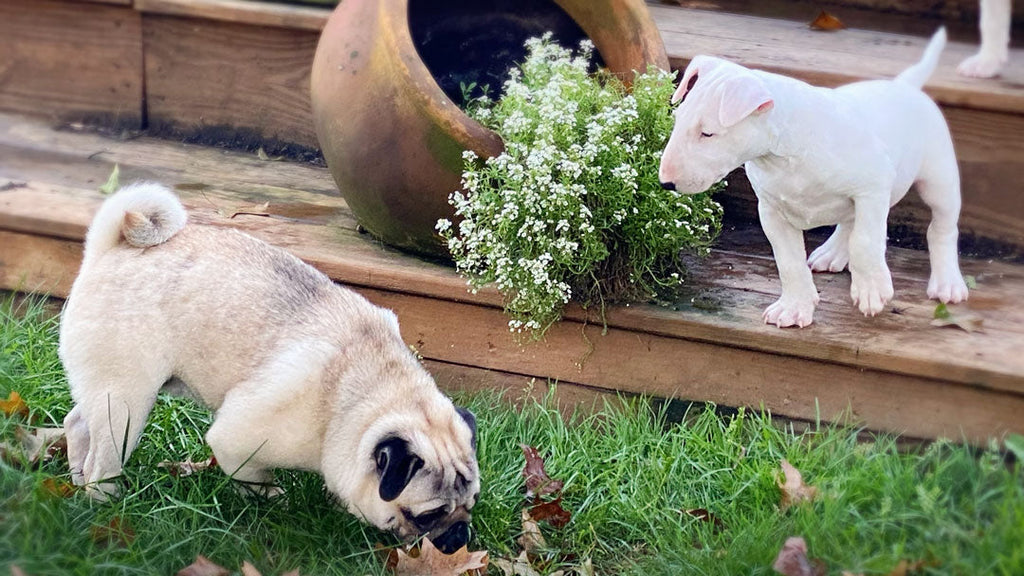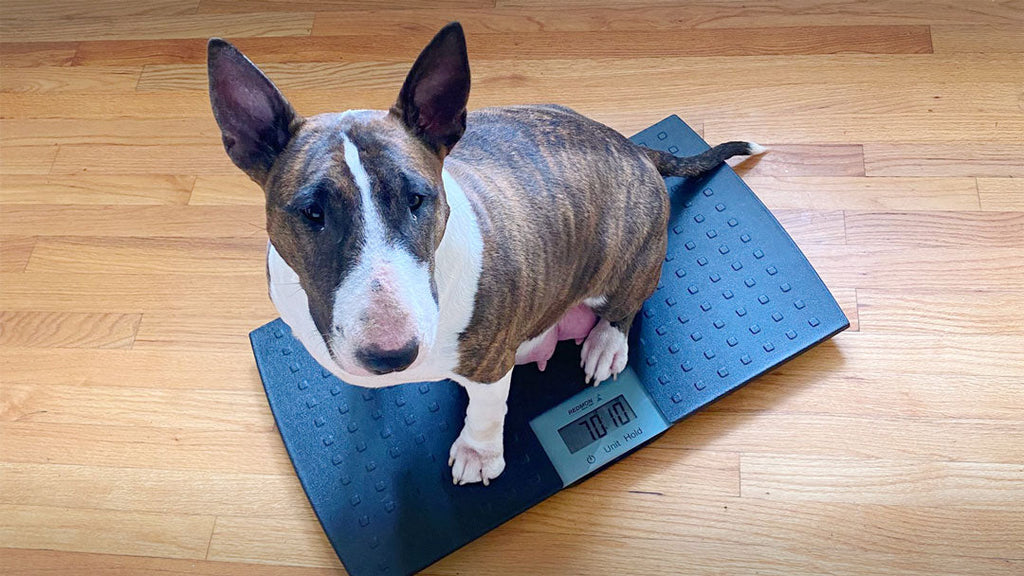Puppies Who Don't "Share Nice."
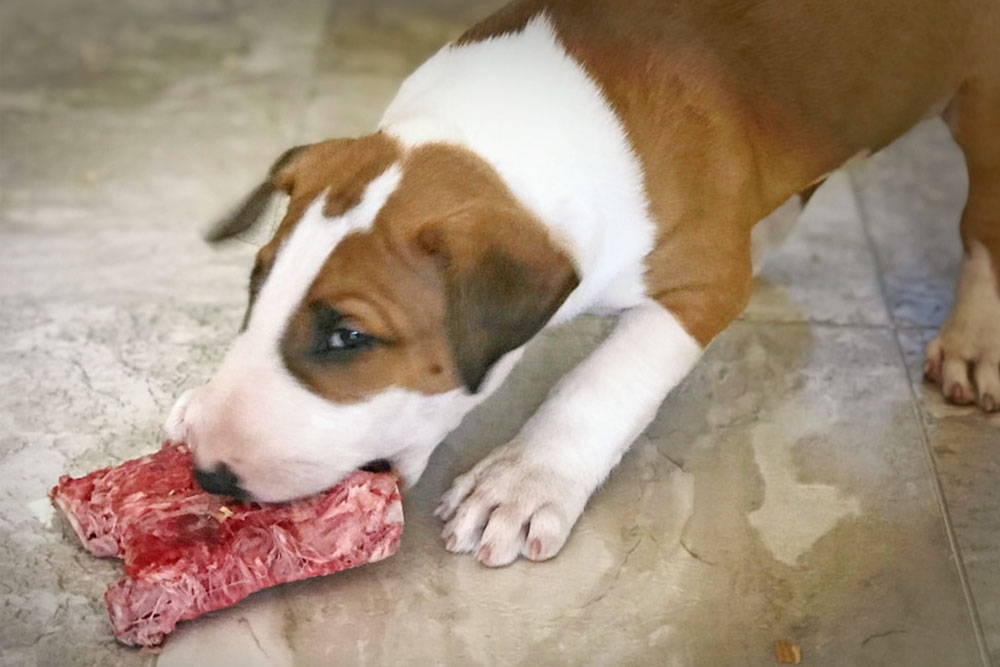
I have one puppy from my nearly 8-week-old litter who’s resource guarding his food from other puppies, not towards me. Never in my life have I seen it from a baby puppy. It’s only food, not toys or chewies. I’ve been correcting him as his mom would have and he doesn’t do it after first correction. But the next meal I put down, he’s doing it again. I’m putting down several bowls and I’m right there while they eat so I’d like to nip this right now. Suggestions? TIA
Hi! There's a lot going on here, and a lot of things we have to back up and unpack before addressing the perceived problem.
First, please go back and re-watch the resource guarding section of Puppy Culture. Under no circumstances, ever, do we recommend corrections for resource guarding of any kind. This is 100% a recipe for an exploding disaster down the line. If you have not watched it already, please also watch Shaping Emotional Responses so you understand conditioned responses and the importance of shaping “good” emotional responses at this age.
I would like to address your comment that you’ve been “correcting him as his mom would have…” Again, please go back and watch the weaning section of Puppy Culture where we address maternal weaning styles. Mothers should be teaching their puppies non-confrontational dispute resolution by using space, retreat, and shaping, never corrections.
Yes, some mothers do use corrections but that maternal style has been found to have negative effects on the temperament and emotional stability of her offspring. I actually teach an entire seminar on this…it will be in the university once we get up and running.
I would also like to address the second half of your comment: “… he doesn’t do it after first correction. But the next meal I put down, he’s doing it again.” This is the exact problem with using suppression as a tool, instead of installing a different and positive emotional response to the stimulus. You have not changed anything, you’ve only put a lid on it.
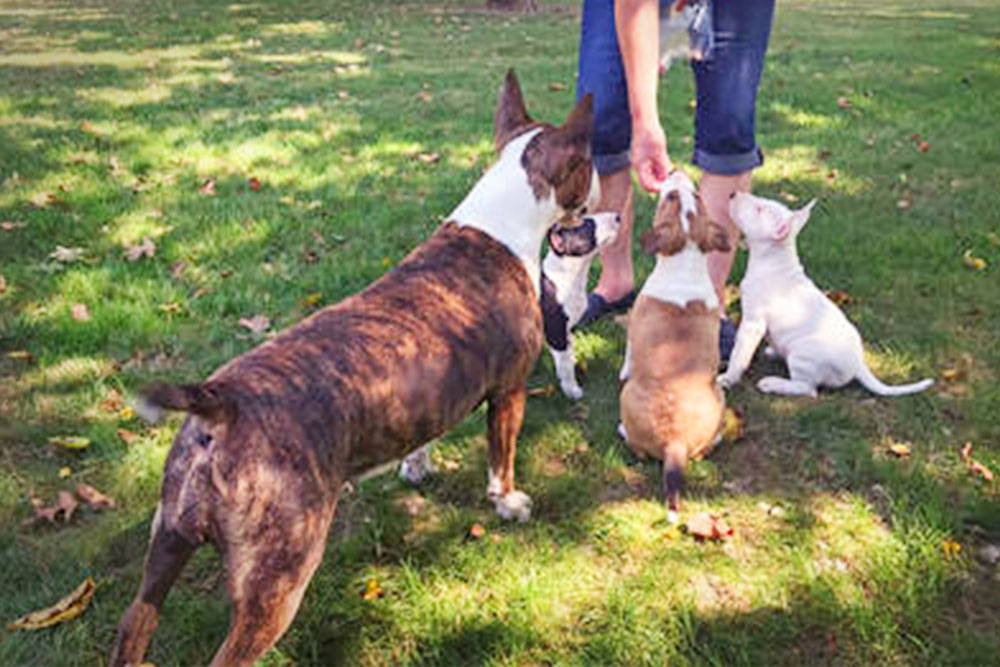
Ideal mothers will not guard food from or use "corrections" on young puppies. But it is your responsibility not to put her in a position where she feels she has no choice but to defend her resources.
Right now, when the puppy is tiny, that lid will hold when you are present to press it down, and pop right off when you are not actively threatening the puppy with suppression. When that puppy grows up, it will be worse. If and when he figures out that he’s stronger than you and he has a full set of kitchen knives in his mouth, he will be liable to lash out uncontrollably. This is why so many people say their dogs suddenly became aggressive “out of nowhere.” The aggression was always there, but there was a layer of suppression on top of it. Once that layer of suppression cracks, the aggression often almost literally erupts through that crack.
Understand that this is normal behavior and has a deep genetic component that has an evolutionary sound purpose. Dogs in the wild who do not defend their food from siblings do not survive. So, number one, there is nothing wrong with this puppy (or at least nothing wrong with this particular behavior). Again, Jean Donaldson does a stellar job of explaining this in Puppy Culture.
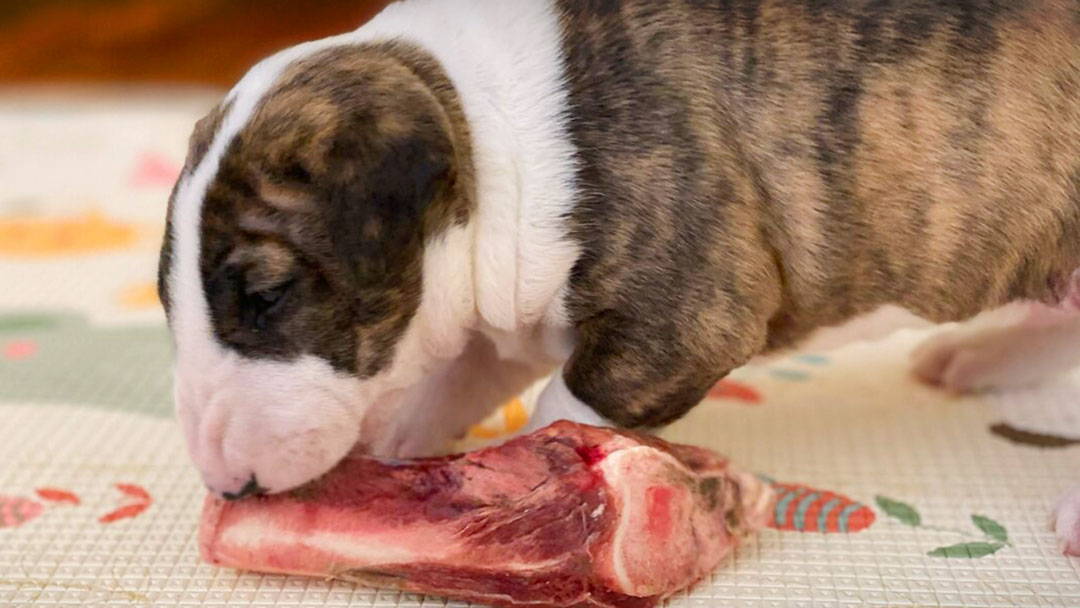
So, now that we have it on board that 1) suppression is a dangerous game 2) maternal styles that use suppression have been shown to have detrimental effects on puppies' temperaments and emotional stability, and 3) resource guarding from other dogs is 100% normal dog behavior, we can move forward with suggestions for how to handle this:
Number one, do not allow the puppy to practice the behavior. Separate out that puppy when you feed. For whatever reason, the puppy feels his food supply is threatened and you need to provide him food safety.
Number two, double up on the resource guarding protocols show in Puppy Culture. They will not necessarily transfer to other dogs, but they will allow your puppy to build up trust in you around food, which right now he does not have.
Number three, if you have good adult dogs, do a lot of sessions where the adult dog gets a treat, you count to one, and then you give the puppy a treat. Wait 3 or 4 seconds and repeat. This must be done with only those two dogs present, and you have to be very crisp with the events. Hold treat hand at your chest. Bring it forward and feed adult dog. Bring it back to your chest and count to one. Move it down and feed baby dog. Put hand back on chest and count to 3 or 5 seconds and repeat process. VERY IMPORTANT only the puppy and the good adult dog should be present when you do this protocol - don't try to do it with a bunch or dogs or puppies milling around.
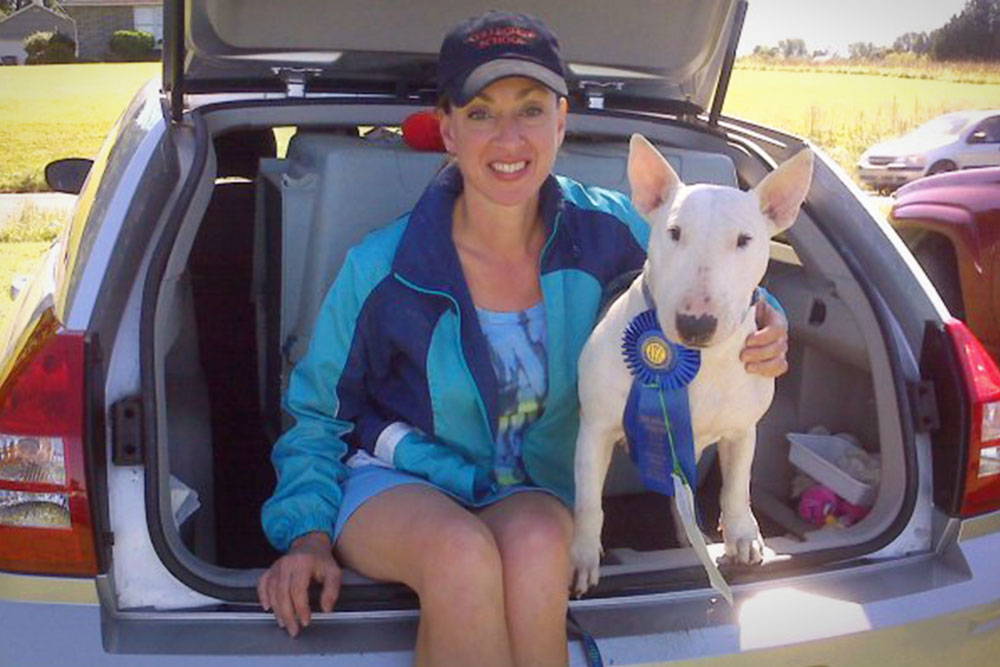
It's really not a big deal if dogs can't share food or eat in front of other dogs. Zulu is so amazing I could do a whole blog just to talk about her. Whatever we've asked of her, she's delivered in spades. Best of Variety at specialties? Sure. ROM championship. Of course. Group placements? Roger. ROM champion offspring? Absolutely. Neutral dog for seminars with reactive dogs? Yes. Puppy socializer? Affirmative. Agility, obedience, rally, water sports? Yes, indeedy. Eating with other dogs? NO! She gets fed separately and that's a miniscule token of respect to give her in exchange for what she's given us.
Number four, and the most important of all, it is not reasonable to expect any dog to share food resources. We have some dogs that can be fed together and some that cannot. We have some dogs that can have chew projects together and some that cannot. We respect these individual differences and it’s extremely important that you do, too. Some of my most wonderful dogs - dogs that have been amazing neutral dogs in my seminars, dogs that will stand impassively while a reactive dog fires off on them, dogs that are reliable workhorses and lead ponies for young dogs, and puppies - cannot be fed with other dogs. So, while you may wish every dog ever could be fed together, some can’t be, but that does not necessarily sort with any other negative personality trait.

This article was originally updated on puppyculture.com in 2020
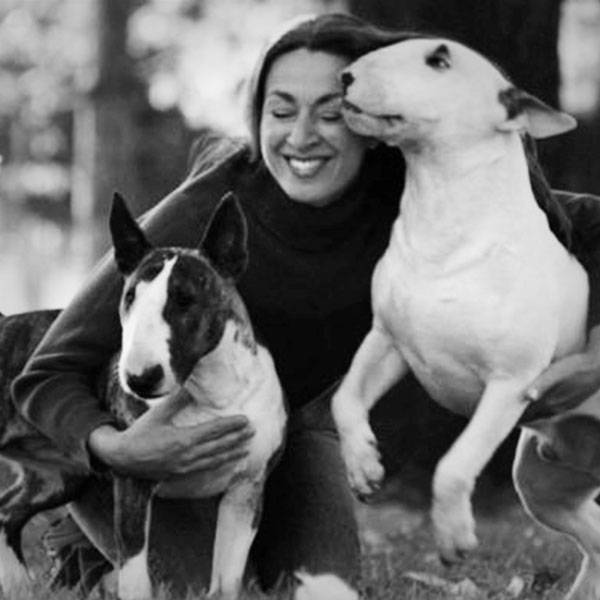
About the Author
Jane Messineo Lindquist (Killion) is the director of "Puppy Culture the Powerful First Twelve Weeks That Can Shape Your Puppies' Future" as well as the author of "When Pigs Fly: Training Success With Impossible Dogs" and founder of Madcap University.
Jane has had Bull Terriers since 1982 and she and her husband, Mark Lindquist, breed Bull Terriers under the Madcap kennel name.
Her interests include dog shows, dog agility, gardening, and any cocktail that involves an infused simple syrup.

